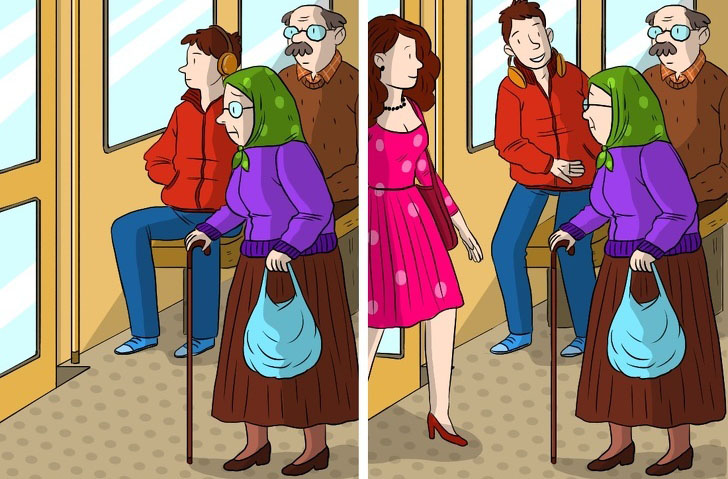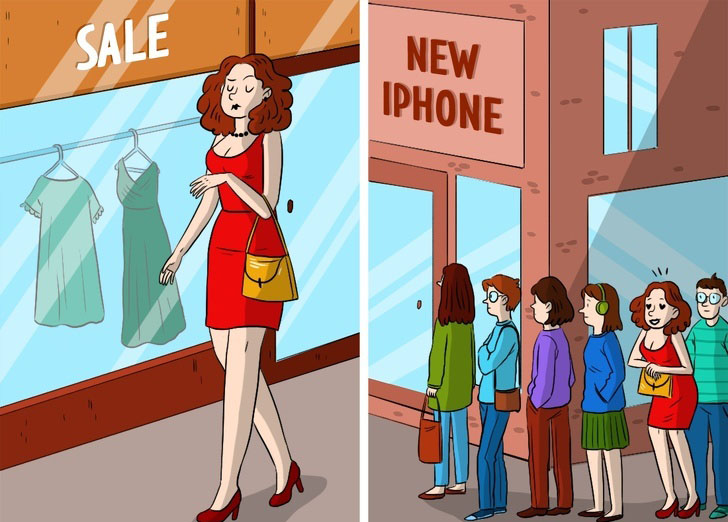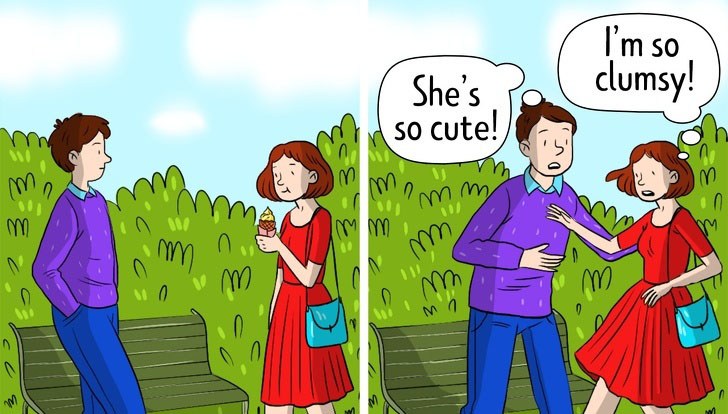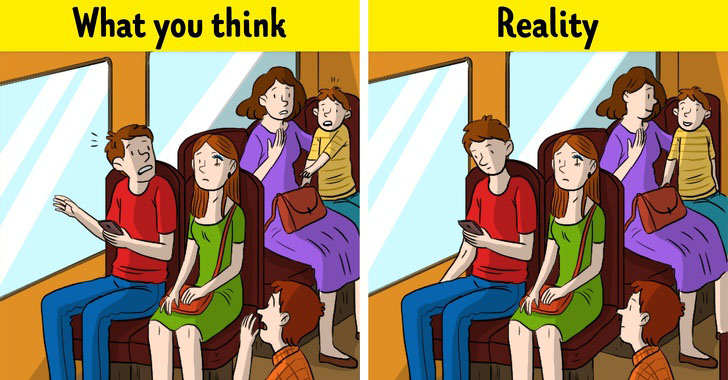The human brain can act really weird sometimes! It makes us behave irrationally, believe in nonsense, and even change our memories. However, all the decisions we make are made for a reason. So what exactly is it that determines the choices you make?
We brought together 6 psychological effects that determine your behavior, as well as several tips on how to deal with them.
Psychological Effects That Affect Our Mental Health
6. Strangers Can Influence A Person’s Behavior

It’s all about the Zajonc theory (social facilitation). You can walk in an old t-shirt at home, but act like a lady in public.
However, a person’s behavior depends not only on the company but also on the number of unwanted witnesses surrounding him at any given time.
For example, a man is likely to give up a seat on a public bus to impress a lady.
How to avoid being caught? Occasionally ask yourself, “Why am I doing this? Is it to impress someone and make them like it, or because I want to do it?
5. Due To A Person’s Interest In An Experiment, They May Behave Differently

The Hawthorne effect is applied here. A new environment has a way of sparking our interest in an experiment or event, making us act differently, acting more diligently and loyally, and give a false-positive result.
For example, in a supermarket, let’s say you have the option of trying a fish paste with a new flavor and completing a questionnaire.
You can give it a high mark in the store, but at home, you realize that there is nothing special about it.
How to avoid getting caught up? Try to think clearly and critically. Doing a survey or experiment doesn’t require you to give it the highest mark just because you were chosen to participate as an expert.
4. People Remember Pending Tasks Better Than Completed Ones

The Zeigarnik effect is applied here. A person is more likely to remember things or actions that have not yet been completed.
For example, a waiter remembers your order until he brings it to you, and after that they shift their attention to other guests.
It is similar to making a sale to a woman who has already chosen a wedding dress elsewhere; she will not remember the dresses she showed him.
How to avoid getting caught up? It is better to finish everything you do to avoid getting stuck in your memories. At least finish it in your head. This will help keep your feet on the ground and stop asking “What if …?”
3. People Buy Expensive Things On Purpose

It is the Veblen effect, an economically unjustified demand for expensive products. This effect is often seen among young people who are concerned with maintaining their social status.
Discounted products or goods for sale are considered defective.
How to avoid getting caught up? Consider yourself involved in this effect if you’re looking for the newest Gucci bag or a trip to Europe just to make another great Instagram post. When you buy something more expensive, ask yourself, “Are you paying for high quality or social standing?”
2. People Like Those Who Make Mistakes

This is an example of the pratfall effect. People who make mistakes and look funny tend to be more attractive to us.
Perfection keeps us at a distance and can even be annoying.
How to avoid getting caught up? Don’t be afraid to look awkward or act silly – these things really make you more attractive! Also, it is much easier to meet people when we are authentic and not when we act like queens and kings.
1. People Overestimate The Amount Of Attention They Receive

The spotlight effect is to have the feeling that you are being watched and that people are realizing all your mistakes.
If a woman has forgotten to apply mascara to one eye, she will make sure everyone around her realizes and laughs at her.
A team of psychologists from Cornell University asked a group of people to wear a silly print T-shirt and count the number of people who noticed it.
They falsely counted twice as many people as the actual number of people who noticed the impression.
How to avoid getting caught up? People perceive our mistakes much less than we think. If you have a stain on your shirt, don’t dwell too long. Think about how often you notice other people’s mistakes … it doesn’t happen that much.
Have you ever witnessed any of these situations in which a person lets a psychological effect take control of their behavior? Share your thoughts with us in the comments.


